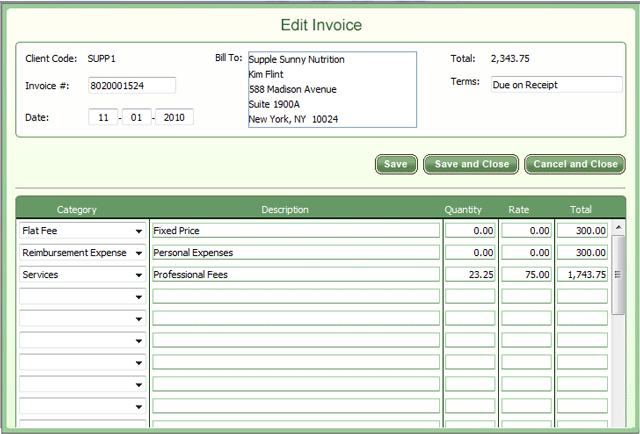

Upon request, you should be able to produce a readable, printed copy of any given document. Thankfully, the IRS accepts digital documents so long as they are complete, accurate reproductions of the originals. Once you’ve determined which records you need to keep and for how long, it’s time to set up a system for organizing them.
#Should i shread business billing invoices how to
See Also: 6 Accounting Mistakes That Put Small Businesses at Risk How to store receipts and tax records This lets you calculate any depreciation, amortization, or depletion deduction, as well as factor the gain or loss when you sell or dispose of the property. Regarding property records, you need to hold on to documentation such as deeds, titles, and cost basis records. Property records: You should keep records connected to the holding of property for the duration of the statute of limitations-three years-after said property leaves your possession. There is no statute of limitations on returns that mislead the IRS. Omitted income: If you fail to report income to the IRS, and it is more than 25 percent of the gross income stated on your return, keep records for six years after the date you filed or the due date of the return-whichever is later.Įmployee records: Records of employment should be kept four years after the relevant payroll taxes become due, or are paid-whichever is later.įraudulent returns: If you fill out a return fraudulently, you’d better hold on to it. Exceptions include:īad debts and worthless securities: If you deducted the cost of either of these on your tax returns, keep the record for seven years. In some cases, you’ll need to hold on to records longer than the three year Statute of Limitations demands.

Exceptions to the three year rule:Īs always, there are exceptions to this rule. Once the period of limitations expires, you’re no longer required to keep tax records for that period. This three year rule comes to us via the Statute of Limitations, which is the period during which you, the taxpayer, can amend your tax return-or in which the IRS can audit said tax return. If you file your return early, it’s treated as though it has been filed on the due date. Plan to keep your tax records for three years after the date you filed the return, or from the due date of said return (whichever is later). See Also: The Entrepreneur’s Accounting Cheat Sheet How long to keep your tax records The three year rule: Also, keeping your receipts guarantees you will be able to claim any tax deductions you are owed. Storing all of them will maximize your level of protection. In the case of an audit, your first line of defense is receipts and tax records. So, when you begin record keeping, obey this simple principle: Keep everything. The burden of proof is on you, the business owner, to provide all the necessary documents.

The nature and legal structure of your business will affect which records you need to keep for the IRS. Keep in mind, this isn’t a comprehensive list. Any other documentary evidence that supports an item of income, deduction, or credit shown on your tax return.Financial statements from your bookkeeper.Generally, the documentation you should keep includes: This proves that you’ve earned what you told the IRS you earned, or purchased what you told the IRS you bought. If you are self-employed or own a small business, the IRS requires you to keep documentation supporting the claims of income, deductions, or credit appearing on your tax return form. See Also: Can I Expense This? An Accountant Explains the World of Write-Offs What tax records do I need to keep?


 0 kommentar(er)
0 kommentar(er)
